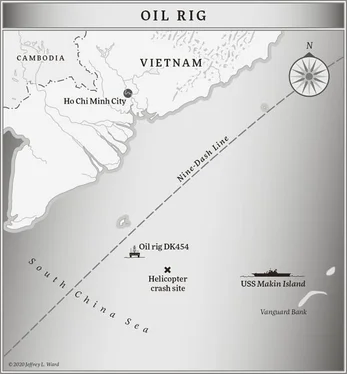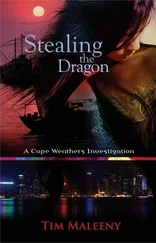Halfway down, he froze.
Hala was kneeling in the dirt on the other side of the truck, at ease, smiling, completely unaware that less than ten feet behind her, a man stood, watching.
47
Derringer in hand, Clark used the truck as cover and padded quickly to the doorway, where he risked a quick peek outside, suspecting the man with Hala might have friends.
He appeared to be alone.
The stolen Toyota was around back, out of view from the road, and the only other vehicle in the lot was a hulking Czech ten-wheeler called a Praga that looked like an old M35 Deuce and a Half with a botched nose job. It couldn’t have been there long, but the windshield was covered with a fine layer of yellow dust—as everything was eventually in this part of the world.
Clark had only gotten a view of the newcomer’s legs, and he was surprised when he stepped around Samedi’s box van to find not a soldier or policeman, but a bent old man, leaning on a polished stick. Probably no more than five and a half feet tall in his youth, age had now stolen a good chunk of that. He stood passively, hands folded on top of the stick, a half-smile on his weathered face. His features were Han Chinese rather than Turkic. A sun-bleached ball cap that had once matched his red down coat took the place of a fur hat or more traditional Uyghur doppa. Clean blue jeans suggested he had enough money to get out of the dust when he wished. Clark couldn’t help but picture him in with a group of other old men, John Deere and Caterpillar hats tipped back on graying heads, reminiscing about the good old days over eggs and coffee.
Clark moved the derringer to his coat pocket, out of sight, and stepped around the corner.
The old man looked up, still leaning on his cane, not at all surprised.
“Ni chi le ma?” the man asked. A polite greeting, it literally meant, “Have you eaten?” Age and his uneven teeth added a slurpy rasp to his Chinese.
Hala spun in the dirt, scrambling to her feet, and ran to Clark at the truck. Clark gathered her to him with his free hand and returned the greeting.
The old man dipped his head, bowing slightly, both hands still resting on the cane, and began to speak. Clark’s Chinese was passable, but he tapped Hala’s shoulder, asking her to translate so he got it all.
“He knows I am the Tohti girl,” she said. “The police are looking for me … They say I was kidnapped by a European or American man … They offer a reward … Seven thousand yuan.”
A little over a thousand bucks. Not exactly America’s Most Wanted, Clark thought, but it was more than half the yearly income of some of the farmers in Xinjiang.
“Okay,” Clark said, his hand gripping the pistol in his coat pocket. “Ask him what he plans to do.”
The old man hunched over his cane and listened. When Hala finished, he launched into a lengthy dissertation, one hand remaining on the stick, the other waving around the warehouse to illustrate his story.
Hala whispered the translation as he spoke.
“He says we are none of his business … He does not need the Bingtuan reward money. His name is Wang Niu, but everyone calls him Xiao Niu —”
The man smiled broadly, looking directly at Clark.
“He says to tell you Xiao Niu means little ox.”
Clark dipped his head, introducing himself as John.
Little Ox waved a hand at the hen and then peered into the darkness at the back of the warehouse.
Hala listened for a moment, then answered back before translating. “He says there is a dry well behind this building. We should hide the dead man in there so his cousin does not see him.”
“His cousin?”
Little Ox nodded as if he understood. Hala translated his answer.
“Timur Samedi and Yunus Samedi both drive this truck,” she said. “Timur is a pretty good man. Yunus is not so good man … Yunus always thinks there is more to … I do not know the word … get more money for a business deal.”
“Negotiation,” Clark said.
Hala nodded enthusiastically.
“I see there is another truck out front,” Clark said. “Is he a driver, too?”
Little Ox squinted, listening intently to the question, and then turned to Clark and said something that made Hala laugh. “He says he came here to visit his chickens.”
The old man kept talking.
“He says we should not worry,” Hala said. “He was once Bingtuan, when he was young and foolish, but not now. He … He has many Uyghur friends. He believes Timur Samedi will help us, but not if he finds out we killed his cousin.”
Hala spoke directly to the old man for a moment, and then turned to Clark. “I asked him how we can know Timur is good when Yunus was also Uyghur, also Muslim, and he tried to rob us.”
Little Ox leaned against his stick and gave a sad chuckle before he began to speak in accented English. “Yunus Samedi was watermelon—green on outside—good Muslim, but red on inside—like Communist Chinese. Muslim, Christian, it does not matter. Religion only teach people what is right, child. Maybe they do it, maybe not …”
The old man looked at Clark with narrowed eyes. “We must hurry and hide the body. Timur Samedi will take you to cross at Wakhjir Pass. Long drive down Karakoram Highway, then you walk in Afghanistan. Very high. Very hard. Many checkpoints on highway, but not so much after you start to walk—”
Clark drew Hala closer, surprised the old man knew their route. “Who told you this?”
The old man smiled, showing his teeth, or what was left of them. He took a cell phone out of his coat and waved it around the interior of the warehouse. “These my chickens. Samedi work for me. I truck carpet and cloth for woman you speak to at the market. She call and let me know you need help. My trucks go across borders all the time, Pakistan, Tajikistan, Kyrgyzstan … all over. Bingtuan and border guards know all my drivers, even Uyghurs hardly ever searched.”
Clark rubbed his face, frowning. “‘Hardly ever’ doesn’t sound good,” he said. “And it seems like the entire world knows we’re trying to get out of Kashgar.”
Hala translated and the old man shrugged.
“Only peoples who can help you know,” he said in English. “Like I say, police know my trucks. We pay them good baksheesh to … how do you say, oil the gears, wave us through checkpoint. Probably nobody suspect you get out that way.”
Hardly ever . Probably. Not odds on which Clark would have normally based a plan. He considered his options—which were damned few—then asked, “You say your trucks get waved through checkpoints? That gets us down the Karakoram Highway, through Tashkurgan, but the Wakhjir isn’t a border crossing, it’s a rural pass, likely guarded by foot patrols.”
“Truth.” Little Ox nodded, pursing his lips in thought. “Much opium come over that pass. Smugglers, they pay big baksheesh to keep border guards away.” The old man gave an emphatic shake of his head. “Probably not many patrols.”
There was that word again. Probably.
Clark pressed the issue. “What are our chances of getting across the Wakhjir? Be honest.”
Hala translated again.
The old man leaned on his cane and thought about it. “Fifty-fifty,” he finally said. “Would be better if you had help on other side. Timur be here soon. We should hide the body.” He stuffed the cell into his vest pocket. It was an iPhone, resembling Clark’s.
“I may be able to improve our odds,” he said. “If you have a cell-phone charger in your truck.”
The old man leaned against his cane and gave a single nod. “I do.”
48
“Got him,” Adara said, binoculars to her face. She was angled away from the tour boat, as if looking at the wooded valley beyond the parking lot.
Читать дальше











![Александр Ирвин - Tom Clancy’s The Division 2. Фальшивый рассвет [litres]](/books/417744/aleksandr-irvin-tom-clancy-s-the-division-2-falsh-thumb.webp)
